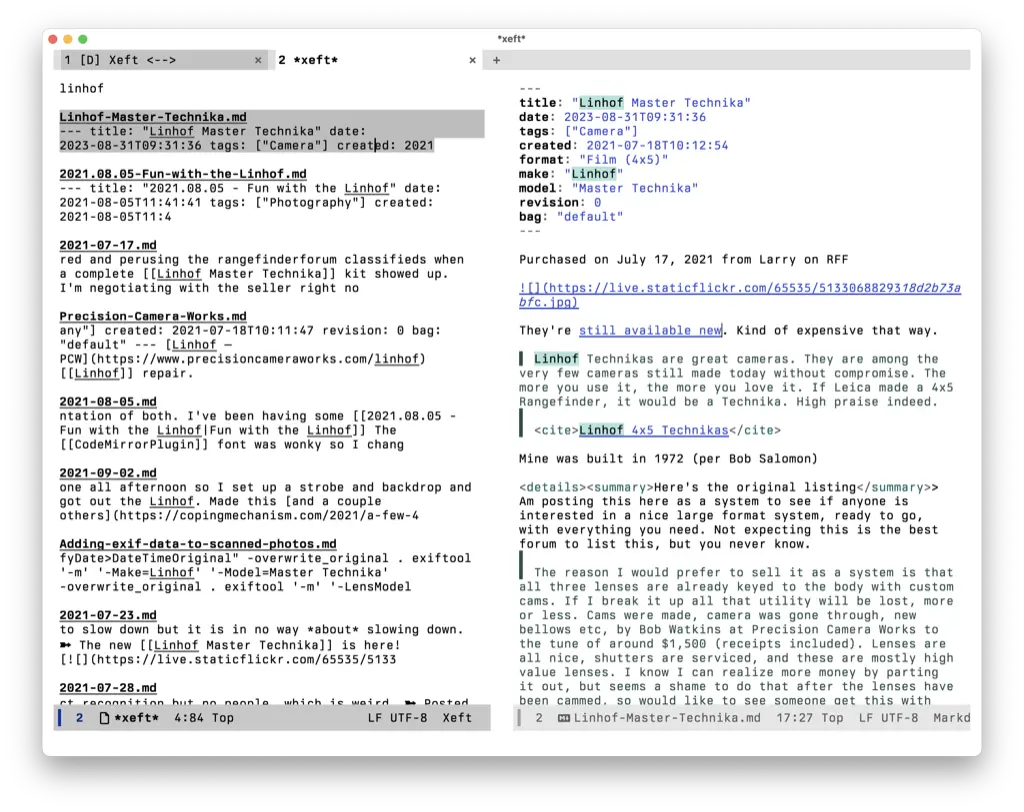Global org-capture shortcut in KDE
I like being able to create new Org mode tasks from anywhere, via a simple keyboard shortcut. This probably doesn’t justify a whole post, but here’s how I did it. Create a script at ~/.local/bin/orgcapture.sh Here’s the script: #!/bin/bash emacsclient -c -F '((name . "capture") (width . 80) (height . 34))' -e '(progn (org-capture) (delete-other-windows))' In my Emacs config, I have a hook that tidies up the new frame: (defun my/org-capture-finalize-hook () "Close frame after org-capture if it was opened for capture." (when (and (> (length (frame-list)) 1) ; More than one frame (frame-parameter nil 'client)) ; Frame created by emacsclient (delete-frame))) (add-hook 'org-capture-after-finalize-hook 'my/org-capture-finalize-hook) In KDE’s Settings, I added a new command in the Shortcuts settings that point to that script. I assigned it to F3. ...

